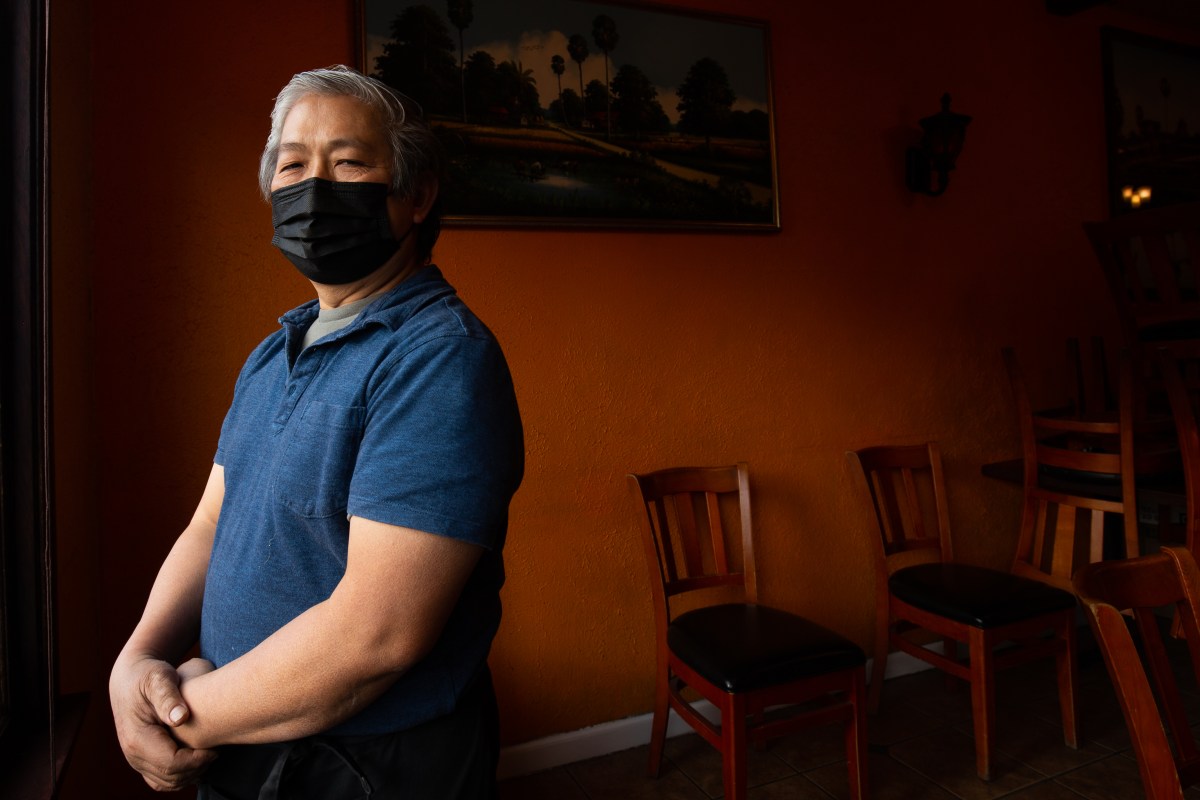Hong Do, co-owner of the Cambodian restaurant Phnom Penh in East Oakland’s Laurel District, told The Oaklandside in January that the restaurant was staying afloat by providing meals to Cambodian refugees via the nonprofit World Central Kitchen. Early in the partnership, the restaurant was averaging $8,000 in food sales to WCW every week. But with the organization now rolling back its restaurant orders to focus its relief efforts in other countries, that number has declined to about $2,000 a week, according to Do.
“Every drop [of money] we can make is helping us,” Hong said, who’s been exploring other sources of funding in recent weeks. One of those was the Restaurant Revitalization Fund, a $28.6 billion fund that was part of a broader COVID relief package, the American Rescue Plan, signed into law by president Biden in March.
Food businesses in Oakland and throughout the country have until Monday, May 24 to apply. Eligible businesses include restaurants, food trucks, bakeries, caterers, brewpubs, taprooms, and tasting rooms. A full list of eligibility requirements can be found here.
Over 300,000 businesses have applied for the program so far, totaling $69 billion in requested funds—more than two times the amount available.
In order to ensure small business owners receive aid, $5 billion was set aside for businesses with gross receipts not exceeding $500,000. Those funds will be distributed into separate groups: $500 million for applicants with 2019 gross receipts not more than $50,000, and $4 billion for applicants with gross receipts between $500,000 and $1,500,000. The minimum amount of aid a business can receive is $1,000, and applicants requesting less than that amount will be removed.
Phnom Penh had gross receipts totaling about $600,000 in 2019 and 2020, making them one of the 34,010 applicants with gross receipts between $500,000 and $1,500,000, as of May 18. Unfortunately, said Do, he recently learned that his restaurant was not selected for funding. “What can I say, It was a little disappointing,” he said.
Phnom Penh was also rejected from the first round of federal Paycheck Protection Program loans early last year, but received about $22,000 in PPP loans through an additional round in March.
A recent Reveal analysis of PPP loans showed there were huge disparities between businesses in largely white neighborhoods, which received far more of these loans, and those in predominantly minority areas like East Oakland.
The Biden Administration hopes to avoid similar inequities with the Restaurant Relief Fund by setting aside portions for women-owned, minority-owned, veteran-owned, and socio-economically displaced businesses. But some are now questioning the program’s fairness to white business owners: a federal judge in Texas issued a preliminary hearing on Tuesday arguing that the relief fund discriminated against a white male restaurateur.
Phillip Greer, the plaintiff and owner of Greer’s Ranch Cafe in Stephenville, Texas, said he lost over $100,000 in revenue during the pandemic but will be at a disadvantage to receive relief because, he claims, the program prioritizes “women, veteran, and social and economically disadvantaged people,” according to language on the Small Business Administration’s information page. (The SBA doesn’t explicitly say these types of businesses will be prioritized).
For Hong Do, a former refugee and longtime Oakland resident, receiving help from the Restaurant Relief Fund is a lost cause. “But we’re doing all right, in a sense,” said Hong, who is still hopeful that his family’s restaurant will continue to weather the pandemic. “So far, we’re okay.”

